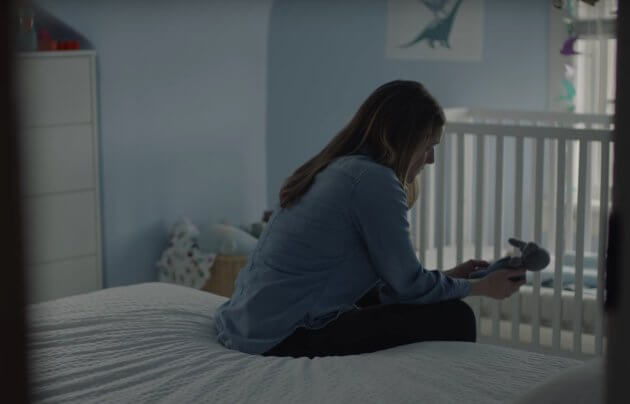Why Do Couples Break Up After Their First Baby?

A baby can change your life. The birth of a child means a lot of changes and readjustments in their parents’ lives. When couples don’t know how to adapt to these changes, this can cause them to break up.
A baby’s first year of life can challenge the parents’ marriage, even in couples that always wanted to have a baby.

Why do couples break up after their first baby?
Becoming parents
Some couples break up after having a baby because the baby becomes the main focus in their relationship. The parents’ attention is almost exclusive to taking care of the baby, so they stop being aware of each other.
As a result, parents stop having intimate moments to share, talk, laugh. Everything revolves around the baby and housework. After having a baby, couples start behaving like robots to just move forward in life. After a baby, their parents’ relationship comes in second place.
A critical moment
A baby’s arrival is a critical moment that demands readjustments in their parents’ lives. There are new challenges, doubts, decisions to be made.
Stress, tiredness and being overwhelmed can stop you from thinking straight. It’s possible that, without realizing, you’ll start acting defensive, demanding things from your partner. Seeing them as a foe, instead of as a friend.

Baby blues
During the first few months of the baby’s life, it’s common for the mother’s mental state to become altered. All of these physical and psychological issues can give mothers the baby blues.
This disorder is very common and comes with a feeling of vulnerability, sadness, anxiety, and mood swings. It doesn’t need a special treatment, but it does need a lot of love and understanding from the mother’s partner.
Emotions run high and the mother can misunderstand her partner’s acts or words. Partners need to put themselves in the mother’s shoes and be with her during this emotional rollercoaster.
Close relationships
Both members of the couple can experience low libido, lack of free time, and exhaustion. If you don’t talk about this, resentment and low self-esteem can make you break up.

Keys for staying together after the birth of your baby
- Realize that things have changed and it’ll be like this for a while. You need to know this is a complicated situation, but it won’t be like this forever. After the fourth month, everything gets better. Mom will be healthy again, Dad will be more involved, and the baby’s schedule will be more consistent.
- Be empathetic with your partner. If there’s a fight, remember this is your exhaustion talking. Try to understand your partner and remember you’re a team. Don’t disrespect each other.
- Let the father of the child create his bond with the child. Sometimes, you don’t want to delegate, but it’s good that both take care of the baby. This way, you can rest and the father won’t feel like a stranger in his own family.
- Talk about what you feel and your fears. Try to work things out together. Remember that making up doesn’t mean either of you is right, it’s about appreciating your partner.
All cited sources were thoroughly reviewed by our team to ensure their quality, reliability, currency, and validity. The bibliography of this article was considered reliable and of academic or scientific accuracy.
- Romero-Gutiérrez, G., Dueñas-de la Rosa, E. M., Regalado-Cedillo, C. A., & Ponce-Ponce de León, A. L. (2010). Prevalencia de tristeza materna y sus factores asociados. Ginecol Obstet Mex, 78(1), 53-57.
- Oiberman, A. (1994). La relacion padre-bebe: una revision bibliográfica. Revista Hospital Materno Infantil Ramón Sardá, 13(2), 66-72.